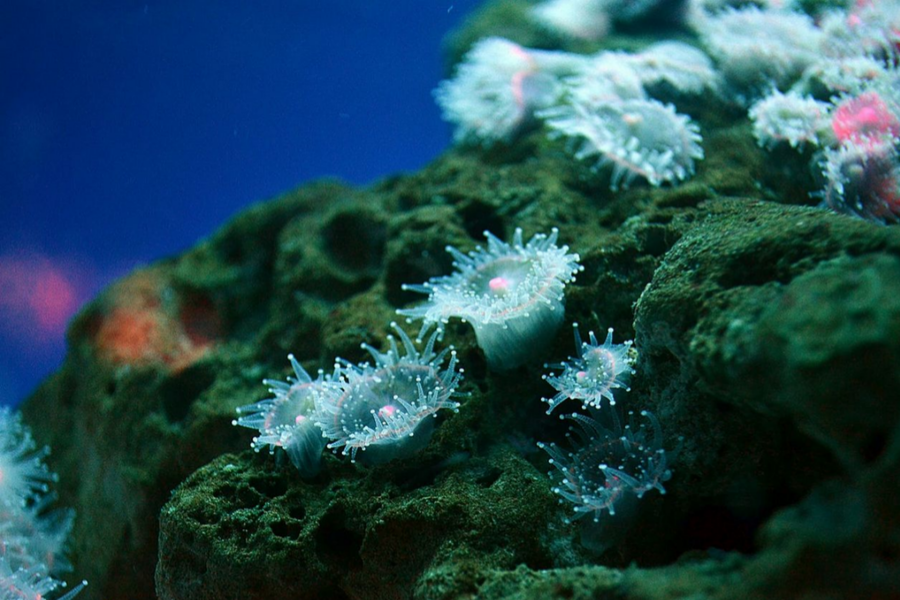The Witty World of Tentacle Puns: A Deep Dive into Cephalopod Humor
Tentacle puns have made quite a splash in the realm of humor, captivating audiences with their clever wordplay and marine-themed wit. Whether you have a passion for marine biology or simply enjoy a good laugh, these quirky quips take you on a delightful journey where the world of underwater creatures and clever language intersect. This article explores the origins, cultural significance, and joyful impact of tentacle puns, revealing how they bring smiles to people of all ages.
The Rise of Tentacle Humor
Tentacle humor has its roots in both ancient folklore and modern pop culture. Mythical creatures like the Kraken have long haunted the seas of our imaginations, often portrayed as fearsome beasts with their formidable appendages. However, in recent years, these intriguing tentacles have been reimagined as the subjects of lighthearted jokes, demonstrating that even the most imposing figures can be sources of laughter.
Our fascination with cephalopods—particularly octopuses and squids—has fueled this rise in tentacle humor. These creatures are known for their remarkable intelligence, adaptability, and the mysterious depths they inhabit, igniting curiosity and sparking creativity. This combination of intrigue and whimsy makes tentacle puns a go-to choice for anyone looking to infuse a little marine magic into their humor.
What Makes a Good Tentacle Pun?
Creating a good tentacle pun involves more than just clever wordplay; it requires a nuanced understanding of both the subject matter and the audience. The most effective puns resonate with people by tapping into shared experiences or knowledge. With tentacle puns, this often means incorporating elements of marine life, popular culture, or relatable everyday scenarios.
The art of crafting a tentacle pun requires creativity and a touch of linguistic gymnastics. Balancing humor with context is crucial, as you want to ensure the pun is both original and relatable. When executed well, a tentacle pun can elicit hearty laughter and admiration, making it a memorable addition to any conversation.
Cephalopods in Popular Culture
Cephalopods have carved out a significant space in popular culture, appearing in literature, film, and even video games. Their enigmatic nature and striking features make them ideal candidates for captivating stories. From Jules Verne’s classic “20,000 Leagues Under the Sea” to the iconic Kraken featured in “Pirates of the Caribbean,” tentacled creatures have significantly impacted the world of fiction.
However, their cultural presence extends beyond their roles as terrifying sea monsters. Characters like Dr. Zoidberg from “Futurama” and Squidward Tentacles from “SpongeBob SquarePants” showcase a lighter, more humorous side to cephalopods. These characters have become relatable and endearing, allowing audiences of all ages to connect with the quirky charm of these marine beings.
Tentacle Puns in Social Media
In today’s digital age, social media platforms have become a fertile ground for various forms of humor, including tentacle puns. Platforms like Twitter, Instagram, and TikTok are awash with users sharing their wittiest cephalopod jokes, often accompanied by charming illustrations or photos. This rapid spread of humor creates a vibrant community of tentacle enthusiasts.
The allure of tentacle puns on social media lies in their universal appeal. They offer a lighthearted reprieve from the stresses of daily life, inviting users to pause and appreciate the creativity behind each joke. The simplicity and accessibility of these puns make them perfect for sharing, fostering connections among those who appreciate a good laugh.
How to Create Your Own Tentacle Puns
Creating your own tentacle puns is a delightful exercise in creativity and wordplay. Start by familiarizing yourself with common traits and terminology associated with cephalopods. Words like “ink,” “squid,” “octopus,” and “tentacle” can serve as the foundation for your wordplay.
Next, think about the context in which you plan to use your pun. Will it be part of a conversation, a social media post, or a humorous illustration? Tailor your pun to fit the situation, ensuring that it is both relevant and entertaining.
Finally, don’t shy away from experimentation. The best puns often arise from unexpected connections or surprising twists. Play with words, phrases, and ideas until you stumble upon a combination that makes you smile.
The Joy of Sharing Tentacle Puns
One of the most enjoyable aspects of tentacle puns is the opportunity to share them with others. Whether you’re exchanging jokes with friends, posting them on social media, or incorporating them into your artistic endeavors, these puns foster a sense of connection through laughter. Their playful nature encourages camaraderie, bringing people together in light-hearted interactions.
Tentacle puns can also serve as effective icebreakers in social situations. A well-timed pun can ease tension and spark conversations, establishing rapport among acquaintances. In a world that often feels heavy, these puns provide a simple yet effective means of spreading joy and positivity.
Tentacle Puns for All Ages
Tentacle puns possess a remarkable versatility, appealing to people across generations. For children, these puns offer a whimsical introduction to the world of wordplay and language. The quirky nature of cephalopods captures young imaginations, making learning an enjoyable and engaging experience.
For adults, tentacle puns evoke nostalgic memories of childhood curiosities while providing a sophisticated humor that can be appreciated on multiple levels. The blend of wit and whimsy ensures that tentacle puns remain relevant and enjoyable for everyone, regardless of age or background.
The Educational Value of Tentacle Puns
Beyond their humor, tentacle puns also offer significant educational value. By weaving factual information about cephalopods into these jokes, they can spark interest in marine biology and inspire further exploration of the ocean’s wonders. This unique blend of laughter and learning creates an opportunity to acquire knowledge in a fun, engaging way.
Educators can leverage tentacle puns as a teaching tool, using them to engage students and introduce them to the fascinating world of marine life. By combining entertainment with education, these puns inspire curiosity and foster a lifelong love for learning that extends far beyond the classroom.
Famous Tentacle Puns
Throughout history, various tentacle puns have made their mark on popular culture, leaving a lasting impression on audiences. One notable example is the iconic phrase “Release the Kraken,” which gained popularity through the 1981 film “Clash of the Titans” and its 2010 remake. This line has since spawned countless adaptations into puns and jokes, demonstrating the enduring appeal of cephalopod humor.
Incorporating Tentacle Puns into Everyday Life
Tentacle puns can easily be integrated into your daily life, adding a splash of humor to routine activities. From greeting cards and text messages to home decor and fashion, the possibilities for incorporating these puns are endless.
Consider using tentacle puns in your next creative project or social gathering. Their playful nature can elevate events, celebrations, and even workspaces, fostering an atmosphere of fun and creativity.
Conclusion
Tentacle puns offer a delightful blend of humor, creativity, and education, making them a versatile form of entertainment for individuals of all ages. By diving into the world of cephalopod humor, you can uncover new ways to connect with others, ignite curiosity, and enjoy a hearty laugh.
Whether you’re crafting your own puns or sharing your favorites, these clever quips have the power to brighten any day and infuse a touch of marine magic into your life. So, don’t miss the opportunity to plunge into this whimsical world and explore the depths of tentacle humor!
Facts
- Historical Roots: Tentacle puns have origins in folklore, particularly surrounding mythical creatures like the Kraken.
- Cultural Presence: Cephalopods have appeared in literature and film, such as Jules Verne’s “20,000 Leagues Under the Sea” and “Pirates of the Caribbean.”
- Modern Adaptation: Characters like Dr. Zoidberg from “Futurama” and Squidward from “SpongeBob SquarePants” showcase the humorous side of cephalopods.
- Social Media Boom: Platforms like Twitter, Instagram, and TikTok are popular for sharing tentacle puns, fostering a community of humor enthusiasts.
- Creative Process: Crafting a tentacle pun requires creativity, context-awareness, and linguistic playfulness.
- Intergenerational Appeal: Tentacle puns resonate with both children and adults, offering a whimsical way to engage with language.
- Educational Tool: They can spark interest in marine biology and serve as teaching aids, blending humor with learning.
FAQs:
- What are tentacle puns?
- Tentacle puns are humorous wordplay involving cephalopods, particularly octopuses and squids, that play on their characteristics, actions, or terminology.
- Why are tentacle puns popular?
- They combine marine life, clever language, and a lighthearted approach to humor, making them universally appealing and relatable.
- How can I create my own tentacle puns?
- Familiarize yourself with cephalopod terminology, consider the context of your pun, and experiment with word combinations to craft something funny and original.
- Can tentacle puns be educational?
- Yes, tentacle puns can introduce factual information about cephalopods in a fun way, encouraging interest in marine biology and oceanic exploration.
- Where can I find tentacle puns?
- Tentacle puns are commonly shared on social media platforms, in greeting cards, and within creative projects, as well as among humor communities.
- Are tentacle puns suitable for all ages?
- Absolutely! They appeal to children and adults alike, providing a whimsical and engaging introduction to wordplay and marine life.






